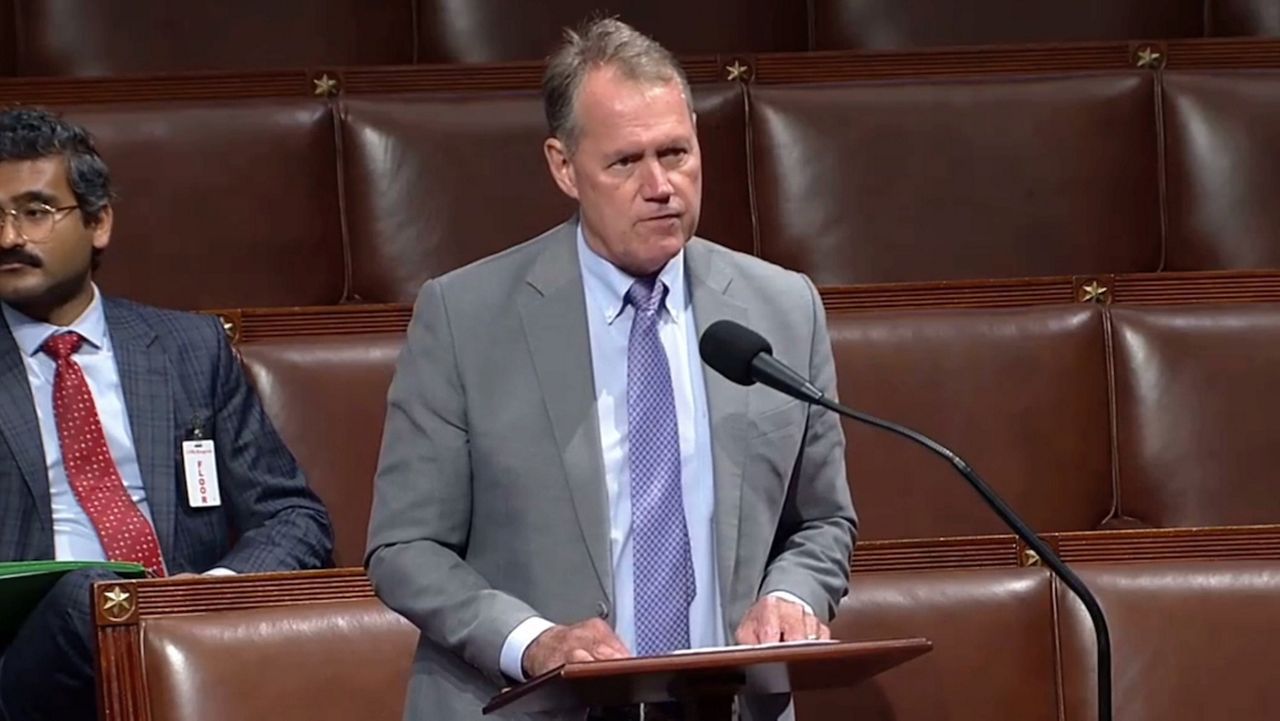U.S. Rep. Ed Case testified to the U.S. House Armed Services Committee that the Indo-Pacific is ”the frontline of our generation-pacing challenges led by the People’s Republic of China” and stressed the critical role Hawaii must play in the United States’ evolving strategy in the region.
Case, a member of the House Committee on Appropriations and its Subcommittee on Defense, submitted the testimony amid the committee’s ongoing consideration of the Fiscal Year 2026 National Defense Authorization Act, Congress’ annual legislation authorizing national defense efforts.
The Congressman highlighted five issues he said are critical to “maintaining a superior force posture in Hawaii, maintaining the support of the people of Hawaii for that posture and projecting our military presence out of Hawaii into the broader Indo-Pacific.”
At the top of Case’s list was the defense of Hawaii, home to the U.S. Indo-Pacific Command and numerous “force-multiplying” defense assets.
“The Department of Defense itself has acknowledged that Hawaii lacks modern surveillance and response capabilities for missile attacks despite the growing capabilities of the PRC,” Case said. “That gap is unacceptable. To defend Hawaii, our nation must invest in the ability to characterize and classify targets and provide full airspace coverage. I strongly urge this committee to prioritize and accelerate investment in missile defense systems tailored to Hawaii’s unique needs.”
Case said radar upgrades must also involve further investment in the Hawaii National Guard, which operates the system.
In encouraging continued support for the DoD’s environmental programs in the state, Case invoked the Red Hill water contamination crisis, expressing thanks for the department’s efforts to defuel and permanently close the Red Hill Bulk Fuel Storage Facility and urging continued support for protecting Oahu’s aquifer, assisting those affected by the contamination and redistributing fuel storage across the region.
Case said the crisis highlighted the importance of military environmental programs like the Readiness and Environmental Protection Integration Program, which supports cost-sharing agreements between the service branches, other federal agencies and state and local governments.
Case also encouraged the department to double-down on cultivating soft power by “fostering goodwill, enhancing influence and promoting stability in ways that go beyond combat capabilities and at a fraction of the cost.”
“Programs and institutions like the Daniel K. Inouye Asia-Pacific Center for Security Studies are central to this mission, serving as a hub for regional dialogue and strategic education that strengthens relationships with our allies and partners,” Case testified. “We must continue its essential mission as a cost-effective means to deter and counter PRC activities throughout the region.”
Case said the United States also needs to streamline its acquisition regulations to compete with China’s aggressive efforts to secure a technological advantage. Specifically, Case urged the DoD to embrace contracting innovation and expand the use of so-called rapid prototyping pathways.
“The Defense Innovation Unit has been instrumental in bridging the gap between Silicon Valley and the Pentagon, tapping into the commercial sector’s agility to deliver cutting-edge solutions directly to the warfighter,” he said. “It is one example of the wide range of contracting options we must provide to our warfighters. It is also a model that is adapted to the different phases of research and fielding that each service needs.”
Finally, Case addressed ongoing land-lease negotiations between DoD and the state, emphasizing the need to continue making available land for training, readiness and regional posture while recognizing cultural, environmental and community considerations.
“Productive dialogue is ongoing, and I am encouraged by the commitment from both sides to find common ground,” Case said. “With transparency, mutual respect and a shared focus on long-term stewardship, I am confident we can reach an agreement that strengthens our defense posture while reinforcing the deep partnership between Hawaii and the federal government.”
Michael Tsai covers local and state politics for Spectrum News Hawaii. He can be reached at michael.tsai@charter.com.




